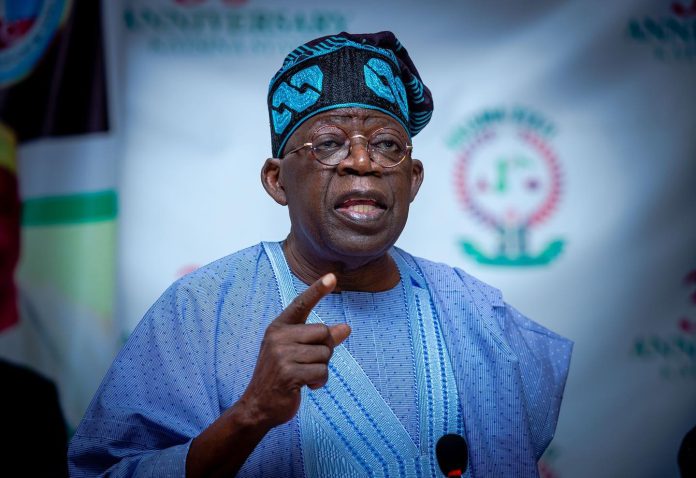|
Getting your Trinity Audio player ready...
|
Former Lagos governor Bola Tinubu will lead Nigeria’s ruling All Progressives Congress (APC) into next year’s general elections after a landslide victory in the party primary.
Mr Tinubu, 70, secured more than half of the votes at the party’s convention.
He will be challenged in February by Atiku Abubakar of the main opposition Peoples Democratic Party (PDP), and Labour’s Peter Obi, among others.
President Muhammadu Buhari will step down in May after two four-year terms.
Mr Tinubu, whose victory was helped by seven aspirants stepping down for him before voting began, will now look to unify the different voting blocks in the party.
He polled 1,271 votes to defeat his closest rival, former Transport Minister Rotimi Amaechi, who polled 316 votes. Vice-President Yemi Osinbajo came third with 235, while Senate President Ahmad Lawan got 152.
Mr Tinubu sold himself to party delegates on his stewardship of Nigeria’s biggest city, Lagos, which he led between 1999 and 2007, overseeing the transformation of its revenue and public transport.
He will now be looking to do the same with millions of Nigerian voters, many of whom are suspicious of his reported health issues and allegations of corruption, which he denies.
The convention started on Monday, a day after gunmen killed worshippers in Ondo state, in the south-west.
The attack at the St Francis Catholic church in the town of Owo highlighted the worsening insecurity under the APC, which Nigeria’s next president will have to confront.
That, along with high unemployment and rising inflation are expected to be the main election issues.
Some of the aspirants took moments before their speeches to acknowledge those killed in the massacre.
The APC emerged as a coalition of major political parties from northern and western Nigeria in 2013 and managed to seize power from the PDP in 2015, when President Buhari secured the first of his two election victories.
The party retained power four years later and has since consolidated its reach across Nigeria, winning several local parliamentary seats and taking onboard defecting governors in southern Nigeria.
Some senior party members, including Mr Buhari, had pushed for a consensus candidate to avoid a vote at the convention that might split the party.
Powerful northern APC governors last week said they supported a southern candidate to succeed Mr Buhari, who is a northerner, continuing a controversial agreement to alternate power between northern and southern Nigeria.
Mr Tinubu, a Muslim from southern Nigeria, has to decide if he will seek a Christian politician in the north – of which there aren’t many – and risk losing vast votes in the region, or settle for another Muslim, potentially alienating southern Christian votes.
Source: BBC





